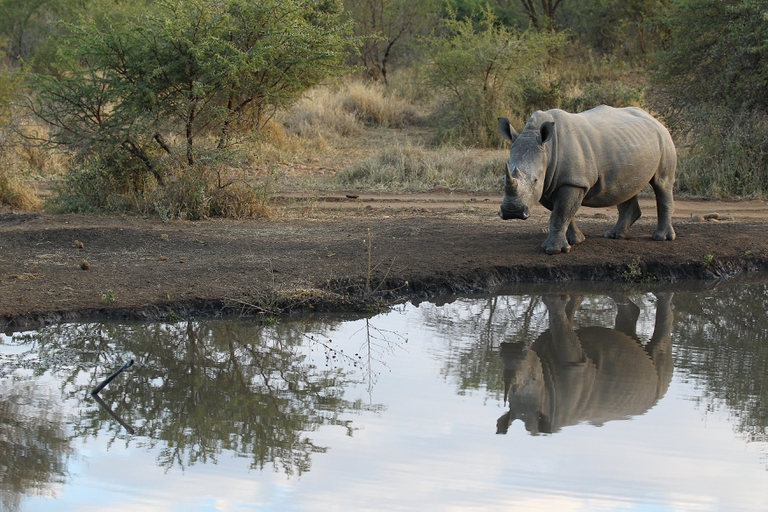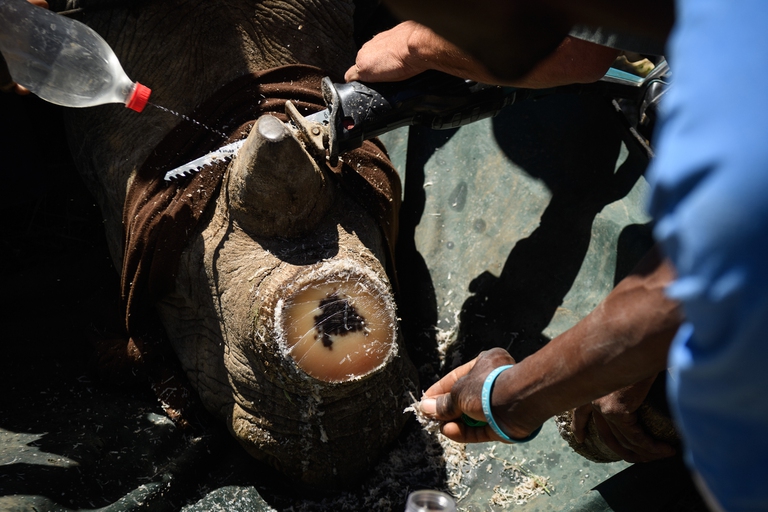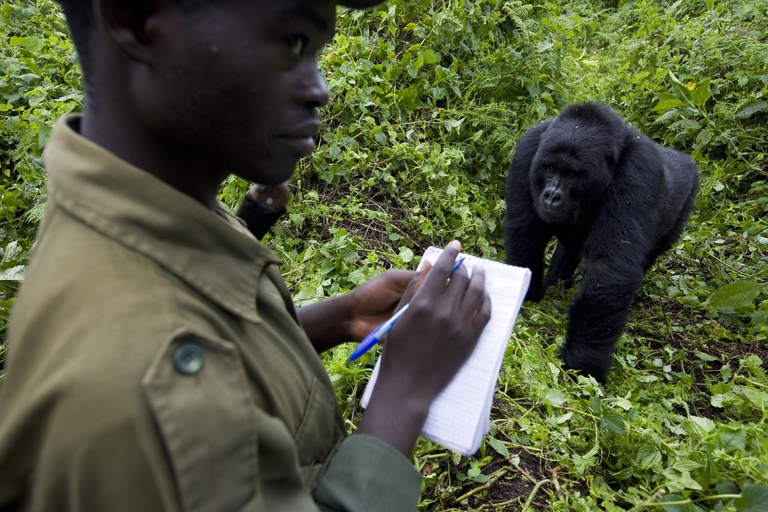
The second wave of the Covid-19 pandemic has shone a painful spotlight on the dire conditions of tea garden workers struggling against poverty in India.
Poachers in Africa are encroaching on wildlife land and killing rhinos in travel hot spots now devoid of visitors due to the coronavirus pandemic.
Tourism revenue for some of Africa’s wildlife reserves and national parks has declined sharply as a result of the coronavirus crisis. Conservationist group the World Wildlife Fund has warned of a sharp rise in illegal bushmeat hunting and surge in organised poaching of black and white rhinos and elephants, threatening endangered species whose numbers have declined dramatically over the past years. Meanwhile, recent data shows that black rhino populations have fallen by 97.6 per cent since 1960 and lion number have gone down 43 per cent in the last two decades. Additionally, at least 35,000 African elephants are killed by poachers every year.
Traffic, a conservation organisation specialised in contrasting the wildlife trade, says that an estimated 5,000 black rhinos and 20,000 white rhinos remain in Africa, and the International Union for Conservation of Nature (IUCN) has since classified both species as critically endangered. Traffic, a British NGO, has in the past revealed that criminal networks of Chinese origin operating in South Africa process rhino horn locally into beads, bracelets, bangles and powder to evade detection and provide ready-made products to consumers in Asia, mainly in Vietnam and China. Coupled with the challenges surrounding the coronavirus, such circumstances pose a catastrophic challenge to already over-stretched law enforcement agencies across Africa.
Read more: Andrea Crosta. The man who uses his intelligence network to prevent poaching and save endangered animals
At least nine rhinos have been killed in North West province in South Africa since the Covid-19 lockdown took effect. In Botswana, another six rhinos have been poached since the pandemic caused the tourism industry to be halted in the country. In April, its security forces killed five suspected poachers in two separate incidents. Particularly worrying is that the fact that the poaching took place in what were previously tourism hotpots normally safe for animals to roam. In addition, Botswana is also facing flooding in the vast, swampy Okavango Delta that has engulfed roads in the area: government workers in the northwest of the country are racing to evacuate the few remaining black rhinos.
President Mokgweetsi Masisi of Botswana has vowed that his government will fight the poachers, most of whom come from neighbouring Namibia and Zambia. “At the rate at which the black rhino population are depleting, I’m afraid our iconic species will be out by the end of 2021. There’s a serious problem with poaching in this country and this must be stopped. Illegal poachers don’t bear a spear or a knobkerrie, or a knife, like some of those who break into households. These criminals have procured sophisticated arms, they’re extremely dangerous and highly radicalised to kill. That’s why we’re going to put an army in place to defend the animals, so any intruder is an enemy,” he strongly stated.
“It’s a bloody calamity,” in the words of Map Ives, founder of NGO Rhino Conservation Botswana. “It’s an absolute crisis in Africa. The poachers have been emboldened because the playing field is in their favour and they won’t have as many problems moving around. We lost hundreds of sets of eyes and ears in the delta. I’m sure poachers know this — they watch these camps closely.”
Meanwhile, a priest, police officer and Lusaka businessman have appeared in court in Zambia on charges of illegal possession of over four kilos of rhino horn. According to court records, the trio had two pieces in their possession, which without a certificate of ownership are automatically the property of the Republic of Zambia. However, the accused have been released on police bond.
In addition, the South African government is proposing an amendment to the Meat Safety Act, which in its present form aims “to provide for measures to promote meat safety and the safety of animal products; to establish and maintain essential national standards in respect of abattoirs; to regulate the importation and exportation of meat and to establish meat safety schemes”.
The law classifies animals for slaughter, consumption, import, export and sale, and the amendment seeks to expand the list of animals that may be legally consumed by humans to include many threatened species including rhinos, elephants and giraffes, on top of bird, reptile and fish species.
Read more: Rhino poaching decreases in South Africa for the fifth year in a row
Twelve rangers were among 17 people killed in Virunga National Park in the Democratic Republic of Congo – closed until the beginning of June to protect staff and animals, including the endangered mountain gorilla, from the coronavirus. Park officials have accused members of a Rwandan rebel group of being behind the attack. At about 11:00 on Friday the 24h of April, near Rumangabo village, “the rangers were on their way back to their headquarters when they encountered a civilian vehicle that had been attacked and subsequently came under a ferociously violent and sustained ambush,” the park’s official statement reads. In Congo, civil war has damaged the wildlife population and made the park vulnerable to attacks by militia groups. So far hundreds of rangers among the Virunga’s dedicated team of 700 have been killed.
Siamo anche su WhatsApp. Segui il canale ufficiale LifeGate per restare aggiornata, aggiornato sulle ultime notizie e sulle nostre attività.
![]()
Quest'opera è distribuita con Licenza Creative Commons Attribuzione - Non commerciale - Non opere derivate 4.0 Internazionale.
The second wave of the Covid-19 pandemic has shone a painful spotlight on the dire conditions of tea garden workers struggling against poverty in India.
In response to a lack of public services, organisations and individuals are helping citizens weather the devastating Covid-19 crisis in India.
A study indicates that the zoonotic origins of coronavirus may have been favoured by global warming’s impact on the conditions for bat habitats.
While Africa’s Covid-19 response has been praised by some, the pandemic has triggered the continent’s first recession in 25 years.
In Coronation, a documentary filmed by the people of Wuhan, the dissident Chinese artist documents the government’s rigid control during lockdown.
David Nabarro of the WHO analyses worldwide actions against the pandemic. Lockdowns alone aren’t a sustainable response to stopping Covid-19.
Kenya may fail to meet its target of ending female genital mutilation by 2022 as Covid-19 school closures have seen more girls undergo the illegal practice.
Helsinki Airport has begun implementing a Covid-19 test which is both noninvasive and simple. The exceptional nurses involved are dogs.
The drop in air pollution during worldwide lockdowns helped prevent thousands of premature deaths. But the situation is returning to pre-crisis levels.










